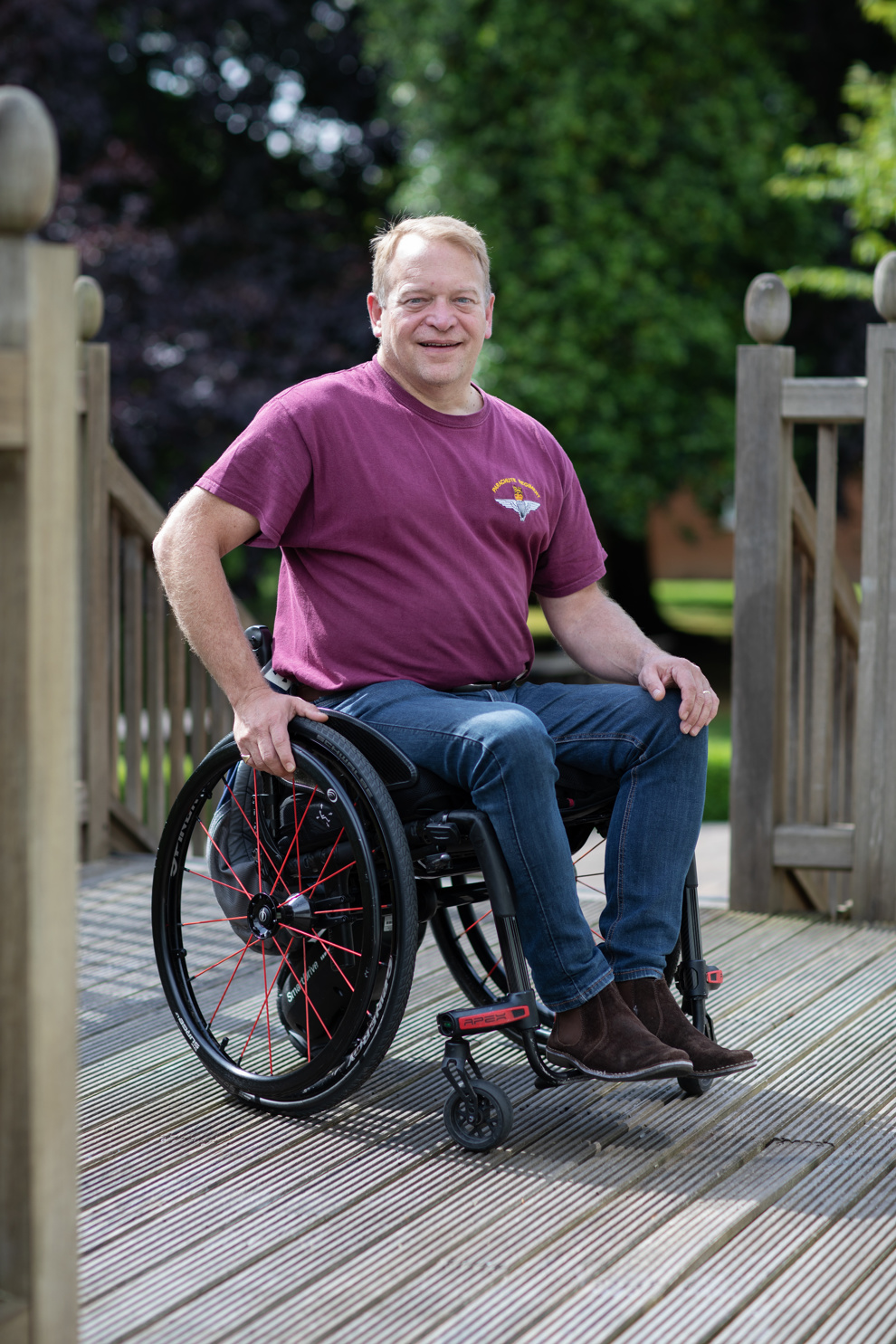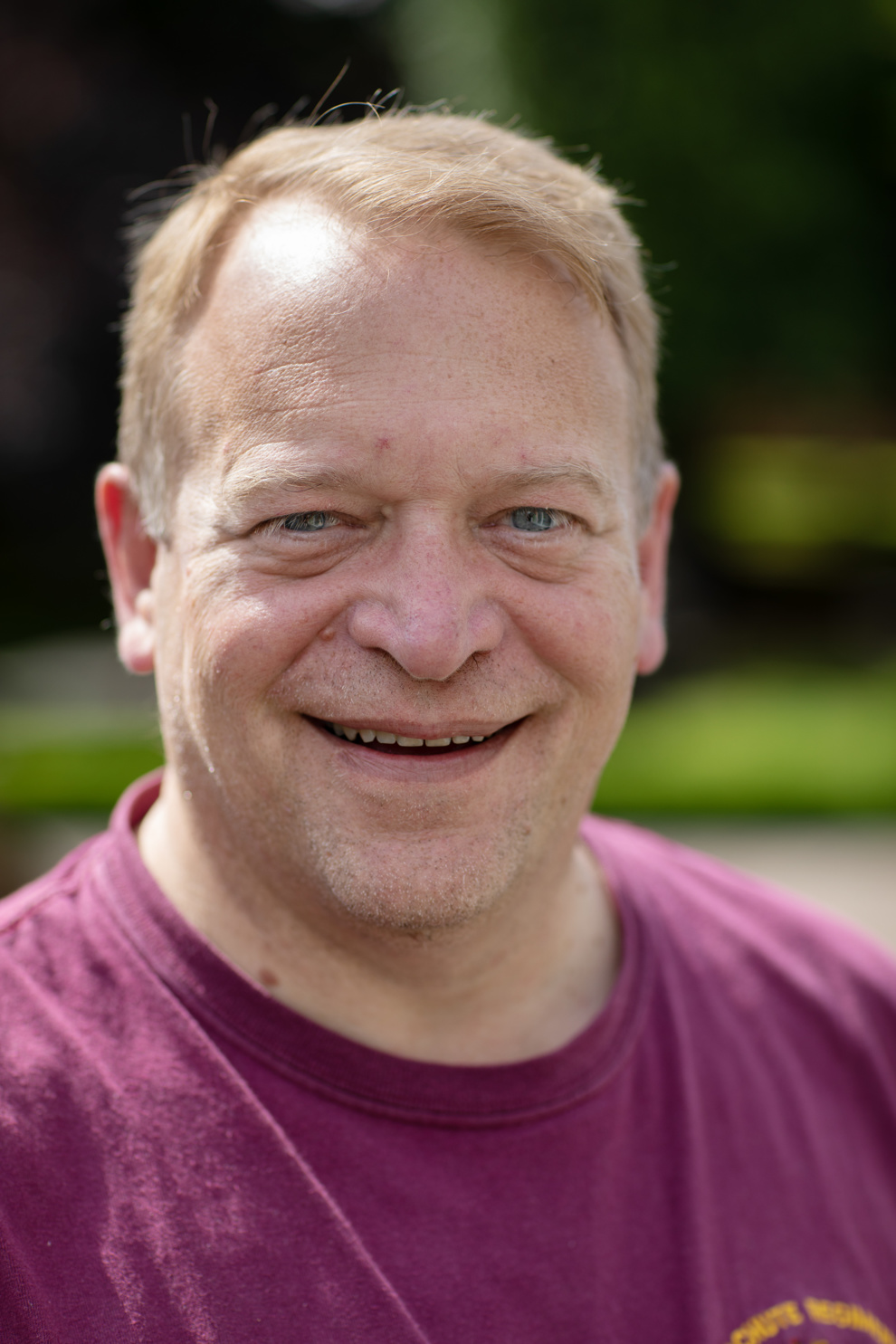David Dent, 56, from Lanarkshire in Scotland, has already lived an extraordinary life
Since being injured while serving in the Queen Alexandra’s Royal Army Nursing Corps, he has become a sportsman, a leading advocate for disabled veterans, a university lecturer, an executive director of a major company, and a consultant for the Scottish Government. Oh, and he is the third consecutive generation of his family to be awarded an MBE.
How come you chose a career in the military?
Even though my father and grandfather were soldiers, I didn’t plan on joining. I trained as a nurse and worked in intensive care, but I enjoyed the challenge of helping critically ill patients and eventually thought military patients would be even more interesting, so I joined up. I dealt with tropical diseases, training incidents, injuries on deployment, and lots of battlefield trauma – and was deployed in Bosnia and Northern Ireland. That meant advanced resuscitation, advanced life support, burns management…

But then you got injured yourself?
I was injured a couple of times in Bosnia in 1995. Firstly, there was a blast injury from a missile, and although I thought I’d recovered, it caused long-term problems – neurological damage and a shrapnel injury. Then, in 1999, whilst providing medical cover for ATO (a Bomb Disposal Officer and his team) I damaged my back. It became clear that I couldn’t continue in the military.
My neurological problems got worse; I had memory issues, problems with speech and swallowing, then my mobility went downhill. I had stints in hospital, occupational therapy, psychiatry, psychology, and heavy sessions in the gym to try and optimise what I had.
So sport played a part in your recovery?
A massive one. I’d loved sport when I was in the military, and so post-rehab I joined Forth Valley Disability Sport. I tried lots of sports to see what I’d enjoy, and did the GB Paralympic biometric measurements. For me, it was field athletics – shot put, javelin, discus and hammer. I loved the mixture of people I met and found a great culture and community; lots of people with challenges trying to be the best they could be.
You’ve become a major advocate for disability sport…
I realised that lots of people I was competing with didn’t have a voice. I’ve tried to help promote sport so people can see it as something fun and something that can lead to high achievement. It is great for fitness and for motivation. I also try to be a voice for veterans with disability at a Scottish Government level. I’ve given talks to the Parliament – it’s important that people in power hear from us. I’m not too bad at making a point, so I see it as my responsibility to my brothers and sisters in uniform
You’ve also helped make historic changes at the Highland Games…
A team of injured veterans were invited to the Games in Mey, Thurso. It was an eye-opener for everyone. People have perceptions of disability and were maybe asking if that fits with the Highland Games. And we had all sorts of people on our team; some with long hair and big beards. But we were up for the challenge.
We were lifting the Ardblair Stones and throwing the hammer from our wheelchairs. Suddenly, these nondisabled ‘heavies’, who think it’s all about being the biggest, were telling us we had more grit than them! It was great because we showed that the events could be really inclusive, and people enjoyed seeing us compete.
I was injured a couple of times in Bosnia in 1995. Firstly, there was a blast injury from a missile, and although I thought I’d recovered, it caused long-term problems – neurological damage and a shrapnel injury
You even tossed the caber…
I did! It’s a three-metre tree trunk. Standing up, you lean it on your shoulder, get balanced, then walk forwards. From a wheelchair, I had to have it lifted into my hands, then I had to power through and flip it. My arms were tired – especially after the hammer and shot put, too!
You also have a pretty full-on day job…
I work for a large international clinical research organisation called Parexel Biotech. I’m an executive director in our commercial organisation in Europe. The company runs clinical studies for biotech and pharmaceutical companies, so they can have their medicines and vaccines approved as being effective and safe. There’s lots of travel, and I’ve also been asked to co-lead a disability strategy steering committee. We look at what we do for disabled patients in our studies, what we do for our employees, how we can hire more people with disabilities, and how to make it an inclusive place to work.

And you’re involved in academia, too?
I’m an honorary professor at Stirling University’s Business School where I teach business skills, but also resilience and diversity. I’m also an entrepreneur in residence at Nottingham University’s Haydn Green Institute for Innovation and Entrepreneurship. We mentor start-up companies out of university. I also recently got made a companion of the Chartered Management Institute, which is an organisation that provides training, resources and thought leadership for managers. I run lectures and webinars on diversity, too – not just on disability, but also as an ally for other minority groups, whether it’s gender, race or LGBTQ+.
Tell us about your PTSD campaign…
We made a series of videos about the portrayal of veterans and those with Post-traumatic stress disorder (PTSD) in the media. PTSD is seen as something to be wary of, perhaps even dangerous. As with many mental health issues, there is a lack of understanding, but there is treatment available and a huge amount of support out there, and people can get better.
The first step is to talk about how you are feeling…
Yes. Men don’t talk about their mental health, and male suicide is ridiculously high. It is clearly a very serious issue. The first step is to talk. The military mindset is to soldier on, but that definitely doesn’t work with PTSD. Other parts of the military culture – being part of a team, helping each other – should be far more prevalent. It is not something to be frightened about. Blesma can help, and I’ve only recently got involved with the Association.
Finally, what is it with all the MBEs in your family?
I got mine for my work for people with disabilities, students and veterans. My dad got his for his work with major organisational and operational delivery in BAOR (British Army of the Rhine) and ultimately was secondin-command of the Royal Scots, and my grandad got one for services to farming. I do tell my children about this, but they haven’t taken up the challenge yet!
We can help
We are dedicated to assisting serving and ex-Service men and women who have suffered life-changing limb loss or the use of a limb, an eye or sight. We support these men and women in their communities throughout the UK. Click the link below to find out the different kinds of support we offer.
Get Support
Leave a comment
Join fellow Members and supporters to exchange information, advice and tips. Before commenting please read our terms of use for commenting on articles.